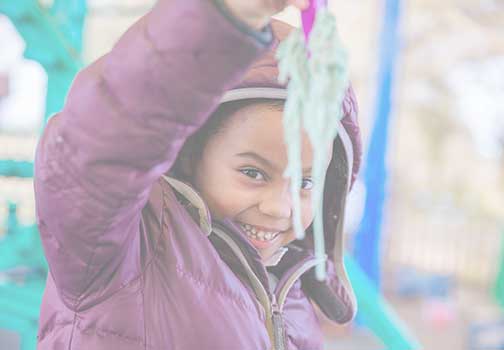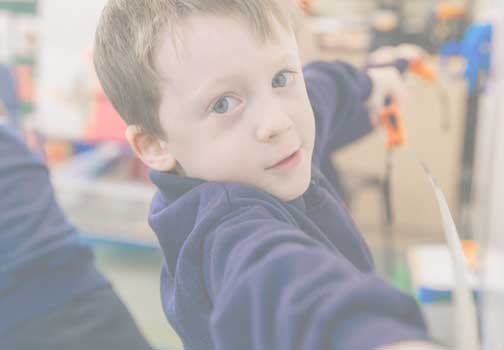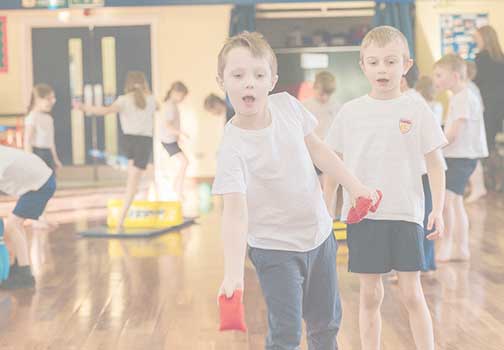English
Our Intent
At Capel Primary School we understand and value the importance of literacy skills to enable children to access the wider curriculum while at school and to give them the knowledge, understanding and confidence to tackle future learning, careers and challenges faced in everyday life. We put high quality texts at the heart of our curriculum and use these to inspire lifelong readers, creative writers, and eloquent speakers.
In line with the current National Curriculum, we provide a rich, text-based literacy learning experience for our children which enables them to develop skills in speaking and listening, reading, and writing.
We have high standards at Capel and encourage our pupils to have high expectations of themselves. We support children to use their literacy skills across the whole curriculum in order to maintain the skills and standards which are taught in literacy lessons and show continuous progression across a range of subjects.
Implementation
At Capel Primary school we believe that having high quality texts at the heart of every literacy learning journey ensures our children have a rich and varied view of reading and writing. We use these texts as a stimulus for our writing genres and from this we create journeys that allow children to experience the texts deeply, learn and rehearse skills linked to the chosen genre and then produce a final piece of work to showcase their current learning. Children experience their literacy learning journey daily through a variety of approaches, including whole class, group work, research, and individual tasks. This enables children to reflect on previous learning and make links between sessions and across genres.
Each year group has a long-term book map which shows what books they will be using during each term and what writing outcomes the children will be working towards. These yearly maps are fluid and allow the teachers to adapt their journeys based on learning outcomes, class interests and new book releases year on year. During a Literacy learning journey we split the learning into three specific sections that focuses on, and builds upon a variety of reading and writing skills. These skills are then showcased in the children's final outcomes.
Our sections are:
Stimulate and generate
Children will be introduced to the key text and explore this in depth, comparing it to another text if appropriate. Teachers will use this section to develop reading comprehension, language acquisition and to rehearse a genre from the previous journey with a new stimulus text.
Capture, sift and sort
Children will develop new learning linked to the text. Teachers will explore the features of the selected genre using a WAGOLL to create a success criteria. Children will be taught specific writing, grammar or punctuation techniques and provided with opportunities to rehearse these skills within apprentice writing.
Create, refine, evaluate
Children begin to create their final written pieces. They plan their work using modelled examples, write draft pieces and then use purple pen to edit and improve their work based on their year group expectations. Children will evaluate their work based on a success criteria created previously. Finally, Children publish their work in a variety of ways to showcase their learning, for example: writing up, verbal presentations, or performances.
Spelling, Punctuation and Grammar
Alongside exploring spelling, punctuation and grammar within learning journeys, we also have dedicated lessons which focus on building upon these core skills. for spelling we use the No-Nonsense Spelling Scheme from Year 2 onwards. Spelling in EYFS and Year 1 is taught through the Little Wandles phonics sessions. Punctuation and Grammar is planned and taught by each class teacher depending on the needs of the class.
Reading
Reading is vitally important at Capel Primary and has a high status within the school. Our priority is both the teaching of reading skills and the enjoyment of literature, enabling children to become lifelong, confident readers. As children begin to read, we focus on decoding, primarily through phonics in addition to other strategies, e.g. whole word recognition, rhyme and context. As children build fluency, comprehension skills become our main area of focus and questioning looks at skills such as re-telling, inference and prediction. We believe that high-quality literature is key to motivating children to read and instilling in children a love of literature throughout the school.
Early reading is taught through our Phonics Programme (Little Wandles) You can find more information about that in the Phonics and Early Reading curriculum tab.
We use VIPERS reading skills across the school to support children in deepening their knowledge and understanding of a text. Children are explicitly taught the skills needed to develop a good comprehension understanding using a range of texts. The development of reading skills occurs both verbally - during whole class reading - and written - during literacy tasks-. Children are taught to recognise question types by their association with the VIPERS letters. Throughout the year children are exposed to a range of age-appropriate questions to support their language comprehension and development. Teachers take a proactive approach to embedding the children’s reading skills through high-quality discussions during story time. Through this consistent, daily development, children are encouraged to enjoy, understand, discuss, and analyse the written word in a supported environment.
Children have a wealth of reading opportunities during the school day, in which to develop and extend their skills, confidence and interest. These include:
- guided reading
- regular independent reading
- hearing books read aloud daily
- selecting their own choice of texts
- reading in other subjects across the curriculum
- reading with an adult
Literacy Across the Curriculum
We recognise that Literacy is not an isolated subject, rather it allows children to access a wider range of curriculum content through their speaking, listening reading and writing skills. As such teachers provide opportunities for children to embed their literacy skills in a variety of ways throughout the whole day.
Including but not limited to:
- Explaining and reasoning in Mathematic problems.
- Predictions and evaluations in Science.
- Using fiction and non-fiction writing to share ideas, understanding and knowledge in History, Geography and SMSC.
- Using ICT skills to produce digital versions of their written work.
- Participating in debates and discussions around SMSC topics and Religious Education.
- Evaluations of their own and other design products or art pieces.
Through consistent rehearsal of literacy skills children at Capel can develop a wider understanding of the world around them and to develop into inquisitive, tolerant, and communicative members of society.
Impact
Through our learning journeys and targeted SPAG and reading sessions, children have been able to develop their reading and writing skills effectively. In reading, children are able to discuss their love of books and think critically about authors use of language. Children are well versed in discussing books and can use their VIPERS skills to show good comprehension of books they read and are read to them.
In writing, children are able to write in a range of genres with sustained stamina, good handwriting and effective use of key features. Children are improving their spelling through a phonetically approach and using etymology and morphology to explore spelling rules. Children can plan, write and edit their work effectively. Not just through proof-reading but through peer and self assessment children are able to make changes to words and sentences to improve the overall flow of their writing. The children of Capel take great pride in their writing and love to have their work displayed around the school.
Our focus is always on continuing to develop our children's reading and writing skills to ensure they are well equipped for secondary school and the world beyond.
Examples of our long term and medium term planning
Progression Maps
Examples of what we get up to in school
'Capel Poetree'
As part of our World Book Day celebration in 2024, each class explored poems and created their own poems based on a theme or poem type. From this we created the 'Capel Poetree' to showcase our wonderful poetry writing!
World Book Day 2024
Amazing Writing from around our school
Literacy Enrichment Day 2023
Our enrichment day this year was focused around Literacy. We had a variety of visitors to our school including a storyteller, author and theatre group. Across the day the children took part in various activities such as: comic book creations, writing stories, making books, illustrating, and many more!
Author Visits at Somerhill



































